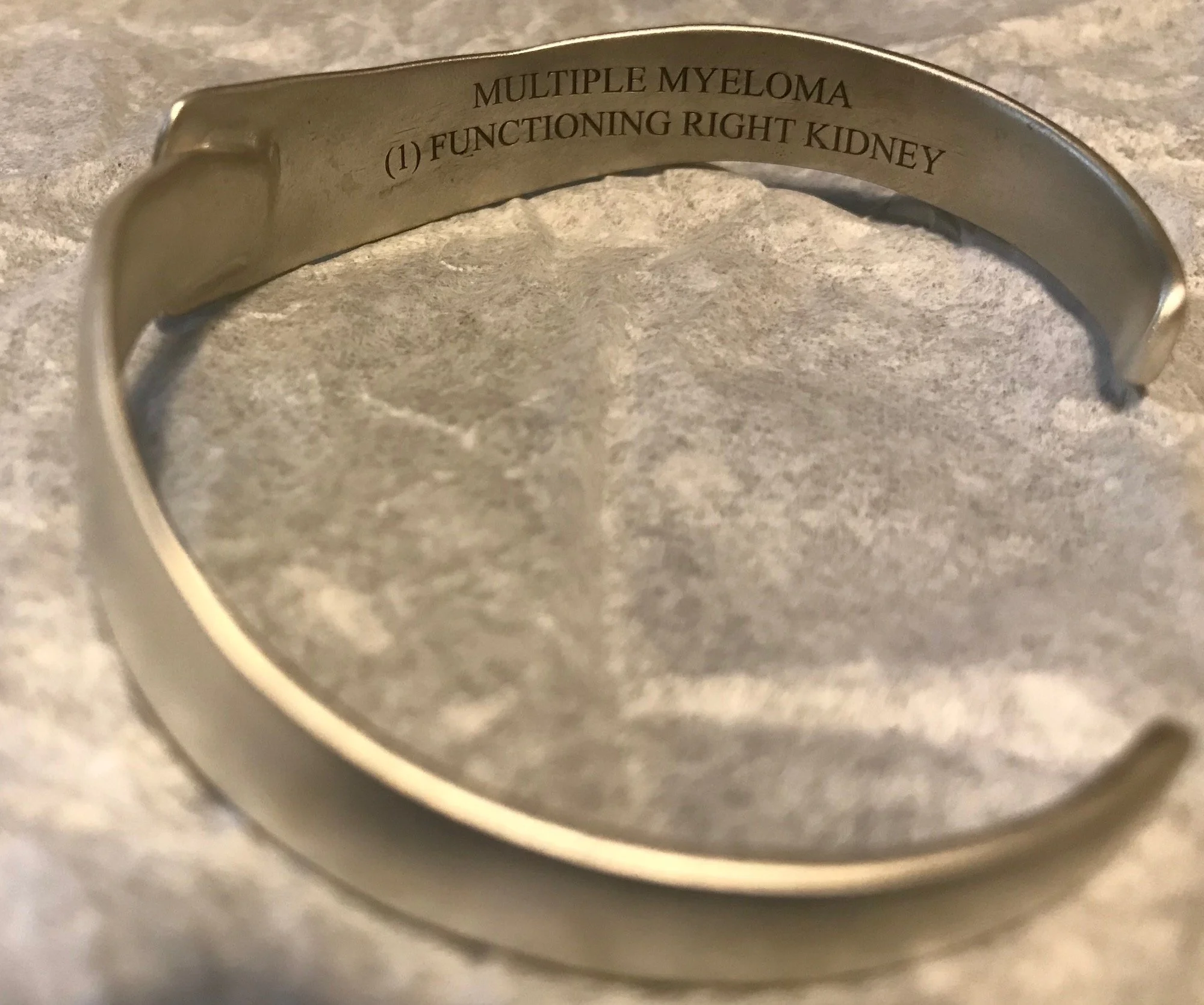Nephrectomy Bracelets
Nephrectomy is a surgical procedure in which one or both of the kidneys are removed. There are several reasons why a person might need a nephrectomy, including kidney cancer, severe infections, and kidney damage caused by injury or disease. It is essential for people who have had a nephrectomy to be aware of the symptoms and treatment options available, as well as the importance of wearing a medical ID bracelet or necklace to ensure that medical professionals are aware of their condition in case of an emergency.
Why it is Crucial to Wear a Medical ID if You Have Nephrectomy
Wearing a medical ID bracelet or necklace is essential for people who have had a nephrectomy. Here's why:
In case of emergency: In an emergency situation, medical professionals may not be aware that the patient has had a nephrectomy. A medical ID can provide critical information about the patient's medical history, which can help ensure that they receive appropriate treatment.
Medication management: Patients who have had a nephrectomy may need to avoid certain medications or treatments that can be harmful to their remaining kidney. A medical ID can serve as a reminder to medical professionals to avoid administering certain medications or treatments that may be harmful.
Kidney function monitoring: People who have had a nephrectomy may need to have their remaining kidney function monitored regularly. A medical ID can provide essential information about the patient's medical history, which can be useful in communicating with medical professionals.
Follow-up care: Patients who have had a nephrectomy may need to attend regular follow-up appointments with their healthcare
What is Nephrectomy?
Nephrectomy is a surgical procedure that involves the removal of one or both kidneys. There are several types of nephrectomy, including:
Partial Nephrectomy: This involves removing only a portion of the kidney.
Simple Nephrectomy: This involves removing the entire kidney.
Radical Nephrectomy: This involves removing the entire kidney, as well as surrounding tissues and lymph nodes.
Why One Might Have a Nephrectomy
There are several reasons why a person might need a nephrectomy, including:
Kidney cancer: Nephrectomy may be recommended as a treatment for kidney cancer, particularly if the cancer is confined to the kidney.
Severe infections: Nephrectomy may be necessary if a severe infection has caused significant damage to the kidney.
Kidney damage: Nephrectomy may be necessary if the kidney has been damaged by injury or disease, and is no longer functioning properly.
Symptoms and Treatment of Nephrectomy
Symptoms of nephrectomy can vary depending on the type of surgery and the extent of the kidney removal. Some common symptoms of nephrectomy include:
Pain: Patients may experience pain at the site of the surgery, which can be managed with medication.
Nausea and vomiting: Some patients may experience nausea and vomiting after the surgery.
Fatigue: Patients may feel tired and weak after the surgery, which is normal and expected.
Changes in urination: Patients may experience changes in their urination patterns, such as increased frequency or difficulty urinating.
Treatment For Nephrectomy May Involve
Pain management: Patients may be given pain medication to manage any pain or discomfort they experience after the surgery.
Fluid management: Patients may need to drink plenty of fluids and may receive IV fluids to maintain their hydration.
Activity restrictions: Patients may need to avoid strenuous activity and heavy lifting for several weeks after the surgery.
Follow-up care: Patients will need to attend follow-up appointments with their healthcare provider to monitor their recovery and ensure that they are healing properly.
Nephrectomy Online Resources
National Kidney Foundation (NKF): NKF provides comprehensive information on kidney health, kidney diseases, and treatment options, including nephrectomy. They offer resources for patients, caregivers, and healthcare professionals.
American Urological Association (AUA): AUA offers information about urological conditions and procedures, including nephrectomy. Their website provides resources for both patients and healthcare providers.
Cleveland Clinic: Nephrectomy Information: Cleveland Clinic provides detailed information about different types of nephrectomy procedures, the reasons for the surgery, and what to expect during recovery.
MedlinePlus - Nephrectomy: This resource from the U.S. National Library of Medicine provides an overview of nephrectomy, including different types of procedures and potential risks.
Kidney Cancer Association (KCA): KCA focuses on kidney cancer and offers information about treatment options, including nephrectomy. Their resources cater to patients, caregivers, and healthcare professionals.
Kidney Health Australia: This organization provides information and resources for kidney health, including information about nephrectomy and its implications.
University of California, San Francisco (UCSF) Health: UCSF Health offers information about nephrectomy, including minimally invasive and robotic-assisted techniques.
